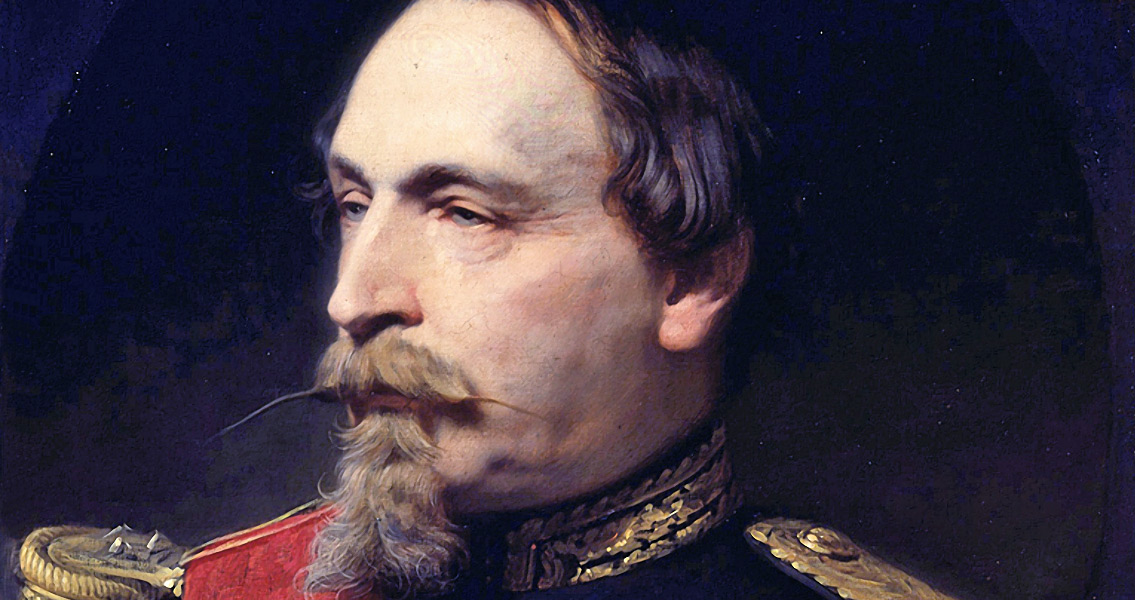<![CDATA[On 26th February 1871, representatives from Prussia and France signed a preliminary treaty in Versailles which all but brought to an end the Franco-Prussian War. The conflict had been an eventful one, witnessing a three month siege of Paris, the unification of Germany, and a politician fleeing a battle zone in a hot air balloon. More importantly, it served as a crucial transition point in European history, as Germany began to replace France as the dominant power on the continent. In the long term, the origins of the conflict came from French fears of Prussia's growing strength, and Otto Von Bismarck's drive to create a single, unified Germany. Prussia's defeat of Austria in the Seven Week War of 1866 had revealed the state's growing power. This coincided with the drive for unification, which Bismarck hoped would free Prussia and the other German states from the shadow of France. The French Emperor Napoleon III seemed well aware that a unified nation in the centre of the continent would completely change the balance of power in Europe, a concern which was ultimately proved correct in the twentieth century. A more direct cause came in the aftermath of the deposition of Queen Isabella from the Spanish throne, in 1868. Prince Leopold of Hohenzollern-Sigmaringen, a candidate to succeed the throne, was persuaded to accept the opportunity by Bismarck and Juan Prim, the ruler of Spain. The thought of a member of the Prussian royal family on the Spanish throne greatly alarmed France, as it would have surrounded the country by potentially hostile rulers. Although France successfully exercised diplomatic pressure to force Leopold to refuse the throne, the Prussian Kaiser William took exception at a French attempt to force him to vow that Leopold would never try to claim the throne again. Bismarck had an edited version of the interview between William and the French diplomats, known as the Ems telegram, published. The move seemed a calculated attempt to provoke the French government into a declaration of war, and if that was the case, it proved successful, Napoleon III declared war against Prussia on 19th July 1870. Bismarck had several reasons for wanting a war with France. Firstly, as mentioned above, it was an opportunity to push French influence away from Prussia. Secondly, the timing was ideal, Prussia was well prepared for a conflict, whereas France was not. Thirdly, Bismarck hoped that a war with France could be a rallying cause for the southern German states to unify with Prussia. The French campaign was shambolic, with Prussian troops soon making significant advances onto the country's soil. In September 1870, a heavy defeat at the battle of Sedan saw Napoleon III captured, along with 83,000 French troops. News of the Emperor's capture caused an uprising in Paris, leading to the dissolution of the Legislative Assembly and France being declared a republic. By October, Paris was completely surrounded by Prussian troops. Leon Gambetta, the leader of the Republican Party and head of the provisional government, fled Paris in a hot air balloon, literally floating across the enemy lines. He set up a new base in Tours, with the aim of organising the French armies from there. Although Gambetta had fled, the Parisians refused to surrender. The citizens of the city forged a defence using crude and makeshift weapons, and survived Prussian attempts to starve them into surrender, by eating dogs, cats and rats. The siege lasted for several months, until January 19th, when out of desperation the French leaders were finally compelled to surrender. The day before the Parisian surrender, Kaiser William I was crowned the Emperor of the whole of Germany, signaling the fulfillment of Bismarck's dream of unification. The preliminary treaty signed on February 26th marked the end of the Franco-Prussian War. It also seemed to represent a time of new beginnings. Germany had unified under the rule of one emperor, while France entered the era of the Third Republic. Germany seemed to be ascending through its unification, while France seemed to be entering a decline triggered by internal divisions. The upheavals of the Franco-Prussian War itself were deeply significant, but only a precursor of the changes that would took place in its aftermath. This article was updated on 02nd March 2015 ]]>
Balloons, Sieges and Unification: The Franco Prussian War
